Math
Sign up for our newsletter
We summarize the week's scientific breakthroughs every Thursday.
-
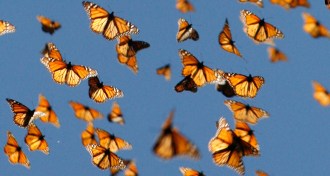 Animals
AnimalsMath models predict mysterious monarch navigation
Researchers have come up with a series of equations to predict how monarchs use their eyes and antennae to figure out how to get to Mexico.
-
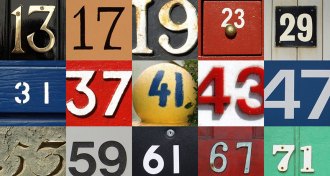 Math
MathMathematicians find a peculiar pattern in primes
Consecutive prime numbers don’t behave as randomly as mathematicians assumed.
-
 Math
MathExperts issue warning on problems with P values
A report from the American Statistical Association warns against misinterpretation and misuse of a common statistical test.
-
 Science & Society
Science & SocietyScience puzzles no longer so puzzling
This year, researchers solved the riddle of mysterious radio bursts, the Erdös discrepancy problem and an elusive acid.
-
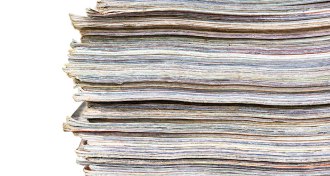 Science & Society
Science & SocietyYear in review: Scientists tackle the irreproducibility problem
In 2015, several research groups reported the extent to which experimental results don't hold up to replication.
-
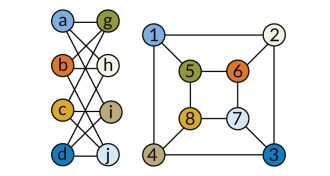 Math
MathYear in review: New algorithm quickly spots identical networks
In what may be a once-in-a-decade advance, a computer scientist claimed to have devised an algorithm that efficiently solves the notorious graph isomorphism problem.
By Andrew Grant -
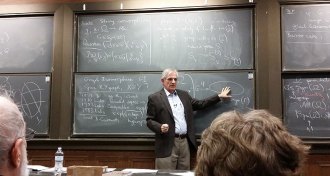 Computing
ComputingNew algorithm cracks graph problem
A new algorithm efficiently solves the graph isomorphism problem, which has puzzled computer scientists for decades.
By Andrew Grant -
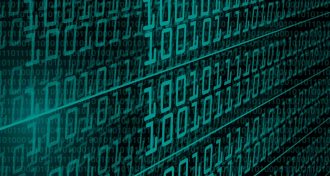 Science & Society
Science & SocietyHappy Birthday to Boole, with 11001000 binary candles
George Boole’s 200th birthday is occasion to celebrate the 1s and 0s of computer language.
-
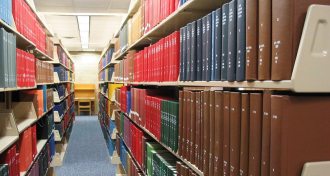 Science & Society
Science & SocietyUnreliable science impairs its ability to serve society
Science’s reproducibility problem impairs the ability of basic research to inform the search for better medicinal drugs.
-
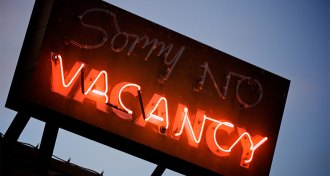 Quantum Physics
Quantum PhysicsLight mimics hotel with limitless vacancies
By mimicking a mathematician’s method for creating vacancies in a hotel with an infinite number of rooms, physicists may have found a way of increasing the amount of data that can be carried via light.
By Andrew Grant -
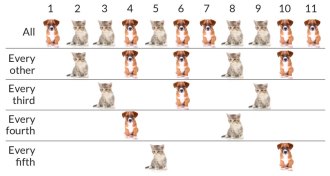 Math
Math83-year-old math problem solved
An 83-year-old math problem concerning sequences of 1s and –1s has been solved.
By Andrew Grant -
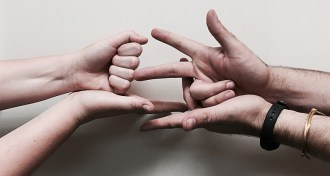 Science & Society
Science & SocietyShort memory can be good strategy
Game theory reveals that there’s a limit to the effectiveness of relying on prior results to predict competitors’ behavior.
By Andrew Grant